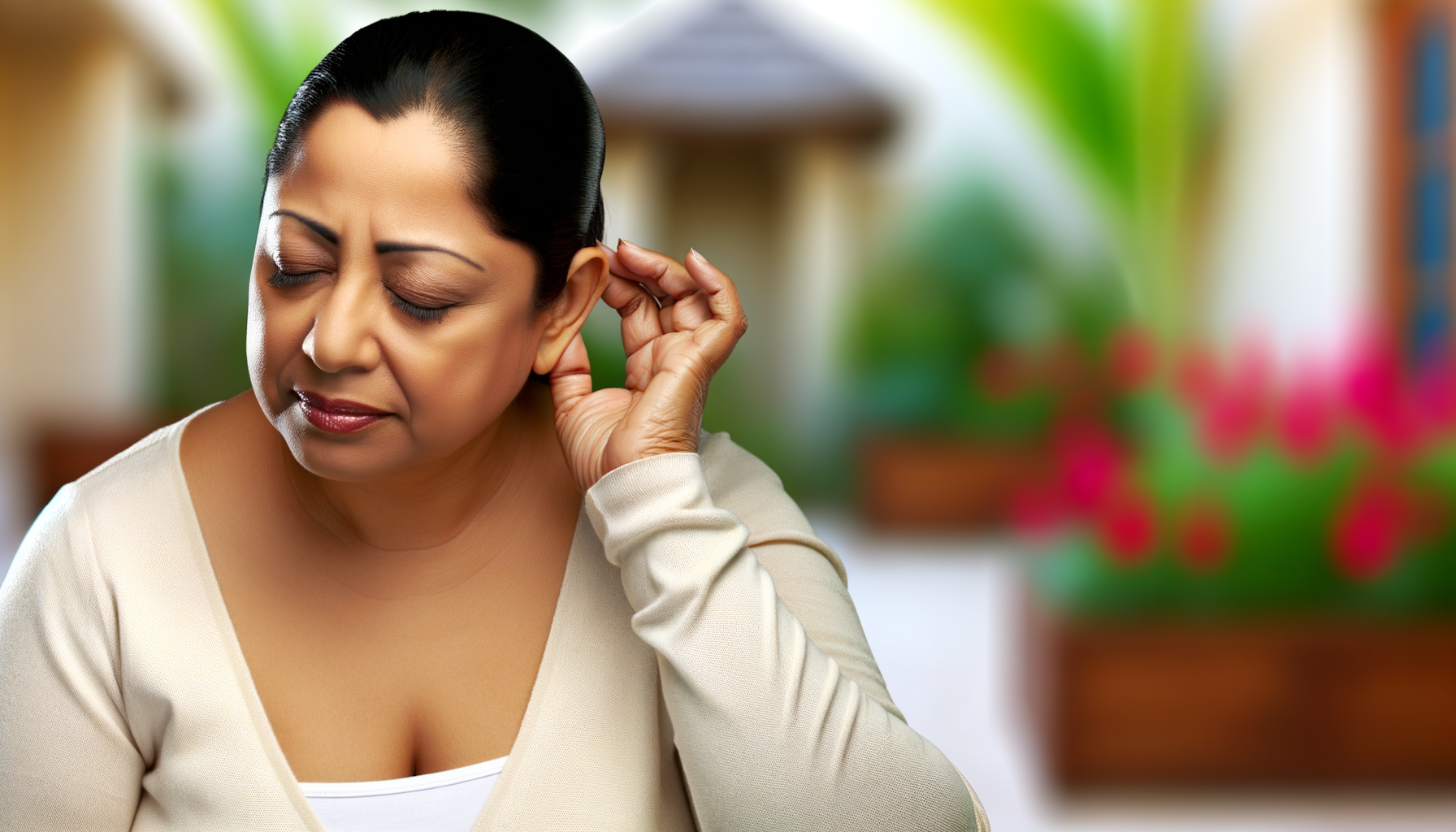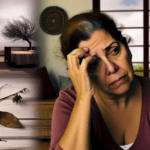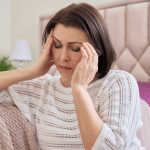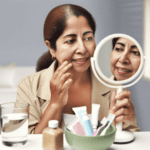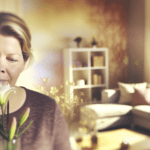Introduction to Itchy Inner Ear
The ear is a complex organ that not only facilitates hearing but also plays a critical role in balance. It consists of three main parts: the outer ear (pinna), the middle ear, and the inner ear. Sound waves enter through the pinna and travel down the external auditory canal, reaching the eardrum, which vibrates. These vibrations are then amplified by three tiny bones in the middle ear and transmitted to the cochlea in the inner ear, where they are converted into nerve impulses for the brain to interpret. The Eustachian tube, connecting the middle ear to the back of the nose, helps equalize pressure and is lined with mucus.
General Causes of Itchy Inner Ear
Itchy inner ear can be attributed to various factors, including infections like swimmer’s ear or otomycosis, a fungal infection. The common cold, with its associated inflamed throat, can also lead to itchiness. Chronic skin conditions such as psoriasis or eczema, allergies, and reactions to personal care products can cause discomfort. Additionally, earwax buildup and the use of hearing aids are known to contribute to itchy ears.
The Unique Connection Between Menopause and Ear Itching
Menopause introduces a unique factor into the equation of itchy ears. As estrogen levels decline, the mucus membranes in the inner ear can become drier, leading to itchiness, earache, hot ears, and tinnitus. This hormonal change affects the ear’s environment, making it more susceptible to discomfort.
Overview of Itchy Inner Ear During Menopause
During menopause and perimenopause, women may experience a reduction in earwax production, leading to dry and itchy ears. This symptom is a direct result of hormonal fluctuations, particularly the decrease in estrogen, which is known to promote water retention. The lack of moisture can not only cause itchiness but also contribute to other ear-related issues such as earaches and tinnitus. It’s important to manage these symptoms carefully, as the urge to scratch can lead to further complications. Natural remedies, such as the use of olive oil or baby oil, can provide relief, and lifestyle adjustments may be necessary to maintain ear health during this phase of life.
The Ear and Menopause: A Deeper Dive
Hormonal Changes and Ear Health
As women enter menopause, they experience a myriad of hormonal changes that can impact various aspects of their health, including the condition of their ears. The decline in estrogen levels is particularly significant, as this hormone plays a crucial role in maintaining the fluid balance in the body. With lower estrogen levels, the mucus membranes in the inner ear can become drier, leading to discomfort and itchiness. This dryness can exacerbate the sensation of itchiness in the inner ear, a symptom that can be both bothersome and perplexing for many women during this stage of life.
Estrogen’s Role in Ear Function
Estrogen is not only pivotal for reproductive health but also for the proper functioning of the ear. It helps to regulate the blood flow to the cochlea and maintains the fluid balance in the inner ear. Estrogen’s influence on ear function extends to the production of cerumen, commonly known as earwax, which is essential for protecting and lubricating the ear canal. As estrogen levels drop during menopause, the production of cerumen can decrease, leading to a lack of natural lubrication and resulting in itchy inner ears.
Symptoms Associated with Menopause and Ear Discomfort
Itchy ears during menopause can be accompanied by a range of other ear-related symptoms. Women may report a sensation of ear fullness, hot ears, or even tinnitus, a ringing or buzzing noise in the ears. These symptoms can be attributed to the hormonal imbalances affecting the ear’s normal function. Additionally, the dryness caused by reduced estrogen can make the ears more susceptible to infections, which can further contribute to discomfort and itchiness. It’s important for women experiencing these symptoms to recognize that they may be part of the broader changes associated with menopause and to seek appropriate management strategies.
Understanding the intricate relationship between menopause and ear health is essential for women navigating this transition. By recognizing the symptoms and their underlying causes, women can take proactive steps to alleviate discomfort and maintain ear health during menopause.
Common Causes of Itchy Inner Ear Beyond Menopause
Infections and Itchy Ears
Itchy inner ears can often be attributed to infections, which are not exclusive to menopausal women. Swimmer’s ear, a type of outer ear infection, can lead to itchiness accompanied by pain and discharge. Otomycosis, a fungal infection, is another culprit that may cause itching, partial hearing loss, and tinnitus. Even common colds can lead to itchy ears, often associated with an inflamed throat. It’s important to identify and treat these infections promptly to alleviate discomfort and prevent further complications.
Impact of Chronic Skin Conditions
Chronic skin conditions such as psoriasis and eczema can extend to the ear canal, leading to persistent itching. These conditions cause the skin to become inflamed, dry, and scaly, which can be particularly irritating within the sensitive environment of the inner ear. Managing these skin conditions through appropriate skincare and medical treatments is essential to reduce ear itchiness.
Allergies and Sensitivities
Allergic reactions are a common cause of itchy ears. Allergens like pollen, certain foods, and pet dander can trigger an immune response that leads to itching. Sensitivities to hair products, shampoos, or even the materials in hearing aids can also cause irritation. Identifying and avoiding allergens or irritants is crucial for those with sensitive ears. In some cases, supplements such as butterbur, quercetin, stinging nettle, or vitamin C may help alleviate allergy-related itchiness.
Earwax Buildup and Management
Earwax, or cerumen, is a natural substance that protects the ear canal. However, excessive buildup can lead to blockages and itching. It’s important to manage earwax buildup safely. Using cotton swabs can push wax deeper into the ear canal, exacerbating the problem. Instead, a few drops of hydrogen peroxide or ear oil can help loosen the wax. If home management is ineffective, professional ear cleaning by a healthcare provider may be necessary.
Understanding these common causes of itchy inner ears can help individuals seek appropriate treatment and find relief from this bothersome symptom, whether they are experiencing menopause or not.

Natural Remedies for Managing Itchy Inner Ears
Safe Practices for Ear Itch Relief
When it comes to relieving itchy inner ears, safety should be your top priority. Inserting objects like cotton swabs, bobby pins, or fingers into the ear canal can cause more harm than good, potentially leading to damage or infection. Instead, consider a few drops of warm olive or baby oil to soothe dryness. If you suspect an infection, a diluted white vinegar solution may help, but always consult with a healthcare professional before trying new treatments.
Home Remedies and Their Effectiveness
Home remedies can be a gentle and effective way to manage itchy ears. A common approach is using a warm compress to alleviate discomfort. Additionally, a few drops of hydrogen peroxide or over-the-counter ear drops designed to remove wax can be beneficial. For those with allergies, natural antihistamines like butterbur or quercetin supplements may provide relief. However, the effectiveness of these remedies can vary, and they should not replace professional medical advice if symptoms persist.
Alternative Supplements for Allergy-Related Itchiness
Menopause can exacerbate allergies, leading to itchy ears. Supplements like stinging nettle, vitamin C, and omega-3 fatty acids have anti-inflammatory properties that may help. Omega-3s, in particular, strengthen cellular membranes, potentially reducing itchiness. Before starting any new supplement, it’s crucial to discuss it with your healthcare provider, especially during menopause, when your body is undergoing significant changes.
When to Consider Professional Medical Treatment
While many cases of itchy inner ears can be managed at home, there are times when professional medical treatment is necessary. If you experience severe symptoms, such as dizziness, earache, or hearing loss, alongside the itching, it’s time to see a doctor. Persistent or worsening symptoms could indicate an underlying condition that requires medical intervention, such as professional ear irrigation or prescription medication.
In conclusion, managing itchy inner ears during menopause can often be done with safe, natural remedies. However, it’s important to monitor your symptoms and seek medical attention if they do not improve or if you experience severe discomfort. By taking a proactive approach to ear care, you can alleviate the itchiness and maintain your overall ear health during this transitional phase of life.

Do you have the most commonly used but toxic, disease bringing chemicals in your skin care? Many chemicals in skincare are hormone disruptors and make menopause symptoms worse.
Find out more…
Preventive Measures and Ear Care Tips
Daily Ear Care Best Practices
Maintaining healthy ears is essential, especially during menopause when hormonal changes can lead to dryness and itchiness. To prevent itchy inner ears, incorporate these daily ear care best practices:
- Gentle Cleaning: Clean the outer ear with a soft, damp cloth, avoiding the insertion of any objects into the ear canal.
- Avoid Over-Cleaning: Earwax is natural and beneficial. Over-cleaning can strip the ear of protective oils and lead to dryness.
- Stay Hydrated: Adequate water intake helps maintain the moisture levels in the skin, including that of the ear canal.
- Use Ear Protection: When swimming or in windy, dusty environments, protect your ears with earplugs to prevent irritation.
Avoiding Common Irritants
Several everyday items and environmental factors can irritate the ears. To minimize the risk of itchy ears, consider the following:
- Headphones and Hearing Aids: Keep these devices clean and take breaks to allow your ears to rest.
- Beauty Products: Be cautious with shampoos, hairsprays, and other products that can enter the ear canal and cause irritation.
- Allergens: Identify and avoid food or environmental allergens that may contribute to ear itchiness.
- Temperature Extremes: Protect your ears from extreme cold or heat, which can exacerbate dryness and itching.
Maintaining Ear Health During Menopause
During menopause, the decrease in estrogen levels can lead to drier skin and mucous membranes, including those in the ear. To maintain ear health during this time:
- Moisturize: Consider using a drop of olive oil or over-the-counter ear drops to keep the ear canal lubricated.
- Omega-3 Fatty Acids: Incorporate foods rich in omega-3s, like fish and flaxseeds, into your diet to support skin health.
- Regular Check-Ups: Visit a healthcare provider for regular ear examinations to catch and address any issues early.
- Manage Stress: Stress can affect hormone levels and skin health, so engage in relaxation techniques to maintain overall well-being.
By following these tips and being mindful of the changes your body undergoes during menopause, you can help prevent itchy ears and maintain ear health.

Popular Read
When to Seek Medical Attention
Recognizing Severe Symptoms
While itchy ears during menopause can often be managed with home remedies and lifestyle adjustments, certain symptoms should prompt immediate medical attention. If you experience any of the following, it’s time to consult a healthcare professional:
- Persistent or severe pain that is not alleviated by over-the-counter pain relievers
- Discharge or bleeding from the ear, which could indicate an infection or injury
- Sudden hearing loss or a marked decrease in hearing ability
- Dizziness or balance issues, which could be a sign of inner ear problems
- Swelling or lumps in or around the ear area
- Fever, which may accompany an ear infection
These symptoms could be indicative of conditions that require more than just home treatment, such as infections, eardrum perforations, or other serious ear disorders.
The Importance of Professional Ear Examination
Seeking professional medical advice is crucial when symptoms are severe, persistent, or when home remedies fail to provide relief. A professional ear examination can help diagnose the underlying cause of itchy ears. During an examination, a healthcare provider will use specialized tools to look into the ear canal and assess the health of the eardrum and the ear canal’s skin. This examination can reveal issues such as infections, excessive earwax, or dermatological conditions that may be contributing to the itchiness.
Treatment Options from Healthcare Providers
Depending on the diagnosis, a healthcare provider may offer several treatment options:
- Medicated ear drops to treat infections or inflammation
- Earwax removal procedures if earwax buildup is causing blockage and discomfort
- Prescription medications, such as antibiotics for bacterial infections or corticosteroids for inflammation
- Referral to a specialist, such as an ENT (ear, nose, and throat doctor) or an audiologist for further evaluation and treatment
It’s important to follow the treatment plan prescribed by your healthcare provider and to attend any follow-up appointments to ensure that the condition is resolving properly.
In conclusion, while itchy ears during menopause can often be managed with self-care, it’s essential to be vigilant about the symptoms you’re experiencing. If you notice any severe or unusual symptoms, don’t hesitate to seek medical attention. Early intervention can prevent complications and provide relief, allowing you to maintain your quality of life during menopause.
Conclusion: Living with Itchy Inner Ears During Menopause
Throughout this article, we’ve explored the multifaceted issue of itchy inner ears, particularly as it relates to menopause. We’ve learned that the ear is a complex organ, sensitive to hormonal changes, especially the decline in estrogen levels during menopause. This hormonal shift can lead to dryness in the ear canal, resulting in itchiness and discomfort. Beyond hormonal causes, we’ve also discussed other common culprits such as infections, chronic skin conditions, allergies, and earwax buildup.
Encouragement for Ongoing Management
Living with itchy inner ears during menopause can be challenging, but it’s important to remember that you are not alone, and there are strategies to manage this condition. Consistent self-care and awareness of triggers can significantly alleviate symptoms. It’s crucial to maintain a routine that includes gentle ear care, avoiding irritants, and staying hydrated. Natural remedies, such as the use of olive oil or baby oil, can provide relief for dry ears, while over-the-counter medications should be used with a healthcare provider’s guidance.
Final Thoughts on Self-Care and Professional Support
While many cases of itchy inner ears can be managed with home remedies and lifestyle adjustments, it’s essential to recognize when professional medical attention is needed. Severe symptoms, persistent discomfort, or the presence of additional symptoms such as hearing loss or dizziness warrant a visit to a healthcare provider. They can offer a thorough examination, professional ear cleaning, and treatment options tailored to your specific needs.
Ultimately, the journey through menopause is unique for every woman, and so is the experience of itchy inner ears. By staying informed, practicing diligent self-care, and seeking professional support when necessary, you can navigate this natural phase of life with greater comfort and confidence. Remember, menopause is a transition, not a permanent state, and with the right approach, you can manage itchy ears effectively and maintain your quality of life.
